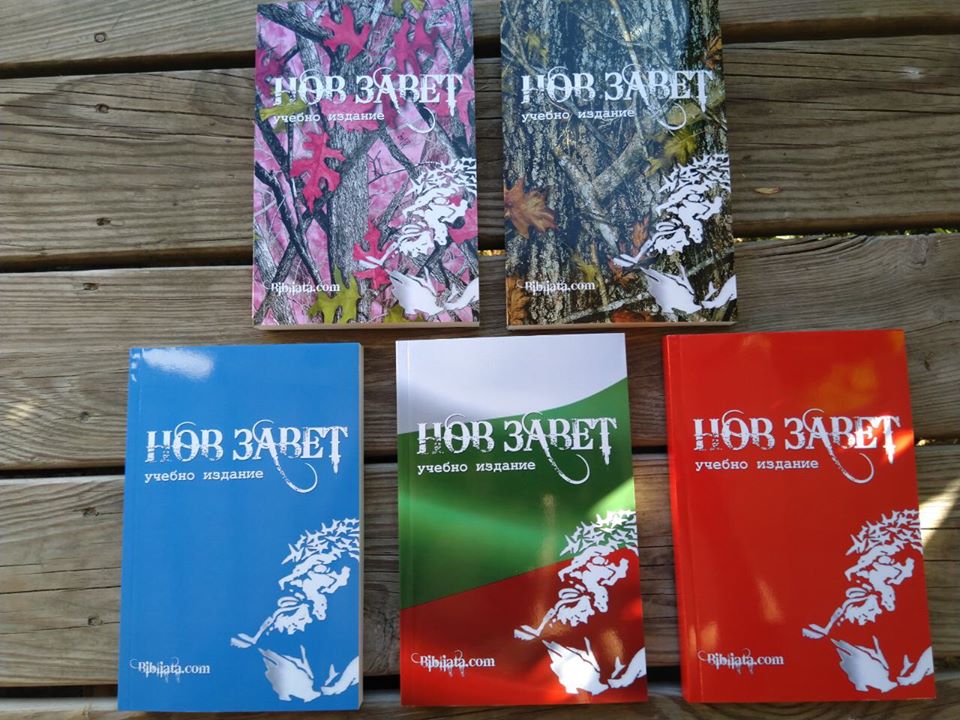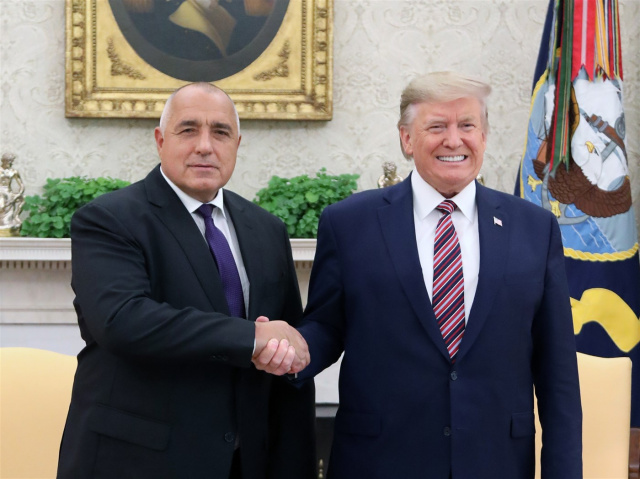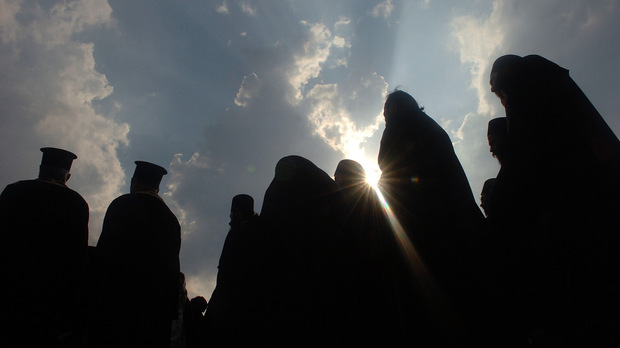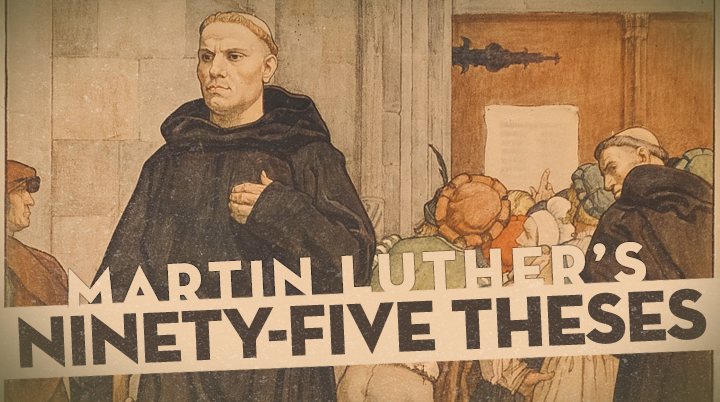Appreciating the Simple Things in Life
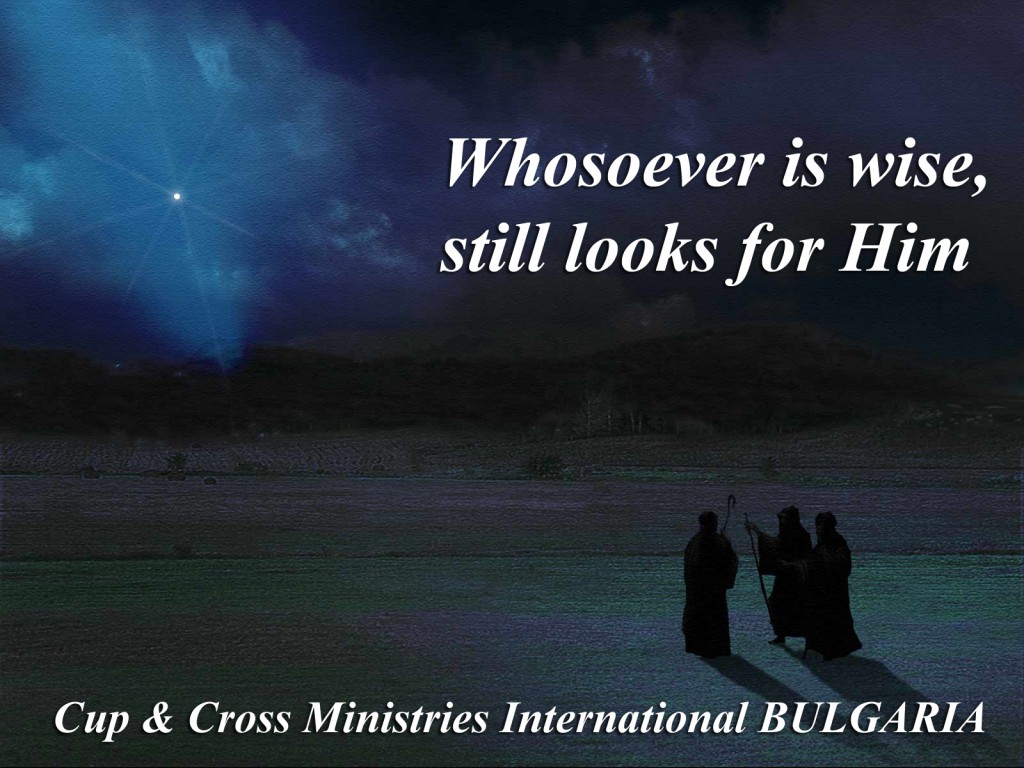 Roasting chestnuts over an open fire and Jack Frost nipping at your nose is a comforting carol which brings many pleasant feelings around the holidays. These are two features, which are not only common to the States, but to Bulgaria as well. This is the season of chestnuts being roasted, however it is not like we picture being over a cozy fire place in a warm home. In Bulgaria it would be on the street side to sell in order to bring in some income for your family. And the Jack Frost is not just a nip for some, but it is a bone chilling cold due to not being able to afford the electric bill.
Roasting chestnuts over an open fire and Jack Frost nipping at your nose is a comforting carol which brings many pleasant feelings around the holidays. These are two features, which are not only common to the States, but to Bulgaria as well. This is the season of chestnuts being roasted, however it is not like we picture being over a cozy fire place in a warm home. In Bulgaria it would be on the street side to sell in order to bring in some income for your family. And the Jack Frost is not just a nip for some, but it is a bone chilling cold due to not being able to afford the electric bill.
For some, there will be no gift under the tree and for others there will not even be a tree. This is not said to bring you sorrow, but for you to appreciate the simple things in life. Enjoy family, friendships, a warm home, a hot meal, your health. Enjoy the time the Lord has given you and use it for his Glory and not for bickering or complaining over the small angst.
Don’t loose sight of the true meaning of Christmas. Christmas is not about the material, but it is about the spiritual. It is about the birth of our Lord and Savior even though our politically correct society wants to get ride of the “Christ” in “Christmas.” If it were not for His birth, He would not have been able to die for our sins. This remission of sin is the ultimate gift this Christmas season for it is through this act that we are able to have eternal life if we only ask.
So when you wake up on the 25th begin your day not consumed with what you didn’t get or what didn’t happen to your liking, but in silence remembering the silent and holy night over 2000 years ago. Remember those less fortunate in order not to take for granted with what you have been blessed. And most of all thank Him for His gift to you. Let these thoughts bring you comfort this holiday season.
Merry CHRISTmas 2009
From all of us in Bulgaria!
5 Bulgarian Study New Testaments Published
We are truly blessed to introduce for the first time the Bulgarian Study New Testament. The text is specifically designed and printed for Bulgarian immigrant churches outside of Bulgaria and specifically for the Goodwin need of Bibles, study guides and leadership literature among the Bulgarian Churches in North America. This first edition contains:
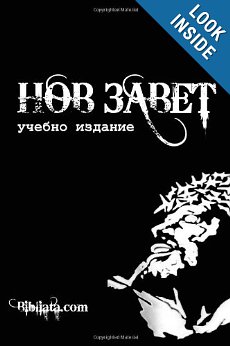 Revised protestant Bible History of the New Testament texts
Revised protestant Bible History of the New Testament texts- The Story of the Bulgarian Bible
- Harmony of the Gospels
- Prologue to each book
- How can I be saved?
- What the Bible says about…
- Holy Spirit in the life of the believer
- Prayer Devotions
- Praise and Worship Lessons
- Role of the Church in the world
- Theology in contrasts
- Names and titles of Jesus Christ
- Messianic Prophecies Fulfilled
- The miracles of Jesus
- The proverbs of the Lord
- Model and use of the Tabernacle
- Maps of Biblical places
- Plan of the Last days and the Book of Revelation
Joint Statement by President of the United States Donald J. Trump and Prime Minister Boyko Borissov of Bulgaria
November 30, 2019 by Cup&Cross
Filed under Featured, Missions, News, Publication
We, the President of the United States and the Prime Minister of Bulgaria, reaffirm the strong friendship and alliance between our two countries. As friends and Allies, we dedicate ourselves to deepening our security cooperation and to promoting economic growth and prosperity for our two great nations. Today, we are announcing measures intended to strengthen the strategic partnership between the United States of America and the Republic of Bulgaria.
The principal goal of our relationship is to strengthen the transatlantic community as a community of nations, united by shared sacrifice and a commitment to common defense, democratic values, fair trade, and mutual strategic interests. Thirty years ago, with the end of the Communist dictatorship, Bulgaria freely chose a transatlantic orientation. Fifteen years ago, Bulgaria reaffirmed its transatlantic Western choice when it became a NATO Ally.
The United States commends Bulgaria’s leadership and commitments to burden sharing, exceeding two percent of gross domestic product for defense spending this year. Bulgaria also plans to meet its longer-term NATO defense spending pledge by 2024. Our militaries stand together in the defense of freedom and look to reinforce our defense and deterrence posture across NATO’s eastern flank, including in the Black Sea, which is critical for Euro-Atlantic security. The United States and Bulgaria have derived mutual benefit from combined training and other U.S. operational usage of Novo Selo Training Area and Graf Ignatievo Air Base in Bulgaria, and intend to explore ways of furthering our combined training opportunities in the future. The United States and Bulgaria also intend to continue cooperation on the destruction of excess conventional weapons.
The United States commends Bulgaria’s recent purchase of eight F-16 aircraft and its efforts to modernize its armed forces. Bulgaria thanks the United States for its support in this acquisition. The United States and Bulgaria plan to deepen our defense technology and industry partnership. We commit to pursuing additional defense technology and industry partnerships in areas that are critical to regional defense and deterrence, including by continuing to facilitate access to high-end defense technologies and armaments that the United States deems available. Bulgaria commits to provide due consideration to proposals from U.S. defense companies who wish to compete in the Bulgarian market.
The United States and Bulgaria understand that energy security is national security. We underline our common understanding that the diversification of energy sources is a guarantee of energy security, independence, and competitiveness for our economies. Recognizing Bulgaria’s interest in moving toward more efficient and cleaner sources of energy, we will cooperate on increasing the supply of gas from diverse and reliable sources and diversifying the nuclear energy sector. To this end, the United States intends to send a technical team to Bulgaria to work with Bulgarian counterparts to explore the possibilities for further cooperation in different areas of energy, including nuclear. We share the view of only developing energy projects which have a clear economic basis or commercial need. The United States and Bulgaria also plan to work together to enhance Bulgaria’s energy security by supporting expeditiously the licensing and use of American nuclear fuel for the Kozloduy nuclear power plant, in strict compliance with the safety and diversification requirements and the rules of the European Union.
We welcome Bulgaria’s aspirations to become a regional natural gas hub by completing the Interconnector Greece-Bulgaria, taking a stake and booking capacity in Greece’s Alexandroupolis floating storage and regasification unit, liberalizing its domestic gas market, expanding gas storage capacity and access, working with Serbia to build another interconnector, and investing in the reverse flow capacity of the Trans Balkan Pipeline to diversify Eastern Europe’s gas imports in compliance with the rules of the European Union. These steps together will significantly enhance Bulgaria’s energy security, lower energy costs for the Bulgarian consumer, and make Bulgaria an energy leader in the region.
We also share a desire to work together through multilateral fora, especially via the Three Seas Initiative and the Partnership for Transatlantic Energy Cooperation, to promote regional development, including via the expansion of vital energy, transportation, and digital infrastructure. Taking into account that secure Fifth Generation (5G) wireless communications networks will be vital to both future prosperity and national security, the United States and Bulgaria declare the shared desire to strengthen cooperation in this field.
The United States supports Bulgaria’s recent efforts to defend the country’s independence and sovereignty from malign influence. We support the long-term efforts of the institutions and agencies involved in investigating and exposing violations of Bulgarian law by foreign malign actors, and we affirm Bulgaria’s right to chart its own future.
We stress that good governance and the rule of law form the basis of our shared security and prosperity. The United States welcomes Bulgaria’s ongoing efforts regarding economic reforms, best practices, and a regulatory framework in pursuit of compliance with international standards, including those of the Organization for Economic Cooperation and Development (OECD). Bulgaria underscores its desire to begin the OECD accession process as soon as possible.
The United States encourages Bulgaria to further address corruption that hinders faith in public institutions and economic growth. The United States strongly supports media freedom everywhere, since a free press is essential to democratic nations, and encourages Bulgaria to further protect media freedoms.
The United States and Bulgaria proudly underscore the trade and investment ties that link our two countries and our common interest in shaping an investment climate that offers transparency, predictability, and stability, as well as a level playing field for our respective companies. We commit to the principle of fair treatment of investors, to resolving any investment disputes by good-faith negotiations, and to expanding bilateral trade. We also intend to work together to determine when it would be feasible to enter into a Social Security Totalization Agreement. The United States supports Bulgaria’s aspiration to join the Visa Waiver Program and welcomes Bulgaria’s continued progress toward meeting the statutory requirements for designation as a program partner.
The United States and Bulgaria commit to conducting a regular strategic dialogue between our two nations in 2020 and beyond.
Bulgaria Won’t Be Part of NATO Fleet in Black Sea, Premier Says
Bulgarian Prime Minister Boyko Borissov rejected a Romanian call for North Atlantic Treaty Organization to set up a permanent Black Sea fleet in response to Russian aggression in eastern Ukraine on grounds it will increase military tension and hurt tourism. Romanian President Klaus Iohannis discussed with Borissov and Bulgarian counterpart Rosen Plevneliev proposing the joint initiative that would include Romania, Ukraine, Turkey and Bulgaria, at a NATO summit in Warsaw in July. Borissov said the move would “turn the Black Sea into a territory of war” and that he “wants to see cruising yachts, and tourists, rather than warships.”
“To send warships as a fleet against the Russian ships exceeds the limit of what I can allow,” Borissov told reporters in Sofia on Thursday. “To deploy destroyers, aircraft carriers near Bourgas or Varna during the tourist season is unacceptable.”
Russia’s 2014 takeover of Crimea and proxy war in eastern Ukraine near NATO territory led the U.S. to rotate troops into eastern Europe and prompted the alliance to set up a 5,000-man rapid-response force that can mobilize within days. To allay fears in former Soviet-bloc nations that they’re vulnerable to attack, the alliance decided this week to deploy a multinational group of 4,000 troops in Poland and the three Baltic nations, all of which border Russia.
According to a 1936 Montreux Convention, countries which don’t have a Black Sea coastline can’t keep their warships there for more than 21 days. NATO members Turkey, Romania and Bulgaria are all Black Sea basin countries. Russia has its own Black Sea Fleet based in Crimea.
Bulgaria hosts a U.S. base, takes part in joint NATO military drills and has troops in Afghanistan, Borissov said. The government is prepared to send 400 ground troops on rotational training as part of NATO brigade that may be deployed in neighboring Romania, he said. The European Union’s poorest state plans to spend 2.3 billion lev ($1.3 billion) to replace outdated Soviet-era armament with new warships and fighters jets.
Bulgarian resorts, spread along the 350-kilometer (217 mile) Black Sea coastline made the bulk of the 2.9 billion-euro ($3.25 billion) tourism revenue last year, or 11 percent of economic output.
“Russia won’t attack Bulgaria with tanks and missiles,” Borissov said citing historical ties based on the Christian Orthodoxy religion the two countries share. “Their actions on Bulgarian territory are different, mostly economic.”
Bulgaria will ask NATO ships to guard the Bulgarian coast only in the case of “a huge refugee wave crossing the Black Sea, should their route across the Aegean and the Mediterranean be closed,” Borissov said, referring to the migrants seeking refuge in western Europe amid continuing war in Syria.
Our 1999 Thanksgiving Letter 20 Yeas Later
Greetings in the wonderful name of our Lord and Savior Jesus Christ.

During this Thanksgiving season my gratitude is extended to the Almighty and Eternal God for giving me the opportunity to minister His Word and encourage His people. I also want to thank you for your tremendous support and caring guidance. My heart joins with yours, in a prayer for blessing, success and prosperity of your family and church in the upcoming Millennium. We all need to use the little time that remains as an opportunity for spiritual renewal and personal preparation for the 21st Century.
After finishing this semester at the Theological Seminary, I will have a few weeks free during the last part of December. During this time, I would love to join with you in the effort to win the lost for the Kingdom of God. If I can be of any help in this quest for truth and spirituality, please do not hesitate to let me know.
Sincerely,
Rev. Dony K. Donev
2019 Bulgarian Elections Continue the Same Political Trajectory for 2020
2019 Bulgarian Elections Continue the Same Political Trajectory for 2020
- Over 1.9 Million People Voted with Ballot, Nearly 160 Thousand – with a Machine
- Newly Elected MEPs to Joint Action on the Mobility I Package
- Names of All 17 New Bulgaria’s MEPs Became Clear Late Last Night
Our preliminary impressions of the political and economical situation in Bulgaria were based on the recent acceptance of the country into NATO and its anticipated admission into the European Union in 2007.Immediately before our arrival, the elections were won by the Socialist party which brought extra tension to the country, although less than 50% of the population participated through their votes.
The Bulgarian Christian Coalition, representing Evangelicals, won only 21,000 votes while struggling to remain politically active. Nationalistic urges among political circles were also common.
Violent public executions among underground cartels have become a normal event in Bulgaria’s everyday reality. The economy has also been dramatically affected as over 90% of the population lives on the verge of poverty. The price of gas grew in the fall and led to the increase of the cost of food, electricity and travel. Various evangelical churches, some of which are pastored and attended by friends of ours, were targeted by the media. Articles against them infiltrated many evangelistic activities among Romani and other minority communities.
These media attacks remind of similar anti-protestant campaigns during 1990-93. Hopefully, this time, the evangelical churches may be prepared to respond adequately.
As we have previously proposed, this puts Bulgaria back on the “Red Light of 30 Years of Communism…” as in 2013, 2014, 2015, 2016, 2017, 2018, 2019 and 2020…
Government Elections in Bulgaria (2005-2019):
 2005 Parliamentary Elections
2005 Parliamentary Elections
2006 Presidential Elections
2007 Municipal Elections
2009 Parliamentary Elections
2009 European Parliament elections
2011 Presidential Elections
2011 Local Elections
2013 Early parliamentary elections
2014 Early Parliamentary Elections
2015 Municipal Elections
2016 Presidential election
2017 Parliamentary elections
2019 European Parliament election (23-26 May)
2019 Bulgarian local elections
2019 Municipal Elections
Bulgarian Orthodox Church calls for abortion ban, compulsory religion in schools, no sex education
The Bulgarian Orthodox Church’s governing body, the Holy Synod, has called for a complete rewrite of the government’s National Strategy for the Child 2019-2030, urging a ban on terminations of pregnancy, for religion to be a compulsory subject in schools, no sex education, and opposing the full ban on corporal punishment in schools.
The strategy, which succeeds the 2008/2018 version, was posted for comment on the government’s strategy.bg website in January and closed for comments on February 8. The church posted its comments on the Patriarchate’s website and they were annexed to the strategy.bg website.
The church said a ban on termination of pregnancy would make it possible that “our society and in particular Bulgarian children will receive a new chance for full existence and blessed progress, and our society – an opportunity to overcome the demographic crisis”.
It said that termination could be allowed only if the mother was so severely ill as to make childbirth impossible or if the foetus was not viable “such as anencephaly (a child conceived without a head)”.
The Bulgarian Orthodox Church also called for religion to become a compulsory subject in schools.
“Religious education in kindergartens and schools educates not only the minds but also the hearts of the smallest members of our society, which means that religious activities (in particular: Orthodox Christianity) reveal to children the sacred secret of this, that man is created in the image of God, and that to educate means to develop not only intellectually, but also to be perfected in faith, hope, love, charity and godliness.This is and should be the highest goal of any education, of any education-form, that man should be likened to the image of his Creator,” the church said.
The church said that quality education for all children would not be complete without compulsory religious education, with the option of “choice among several strands, depending on the views and religion of the family and the child”.
It opposed the idea of sex education at schools, insisting that “the younger generations are educated about the value of true love and not about sexuality that is taken out of the context of love”.
The church said that young people should be taught that the best contraceptive is abstinence, rather than “sexual permissiveness when using contraception before and outside marriage”.
The church expressed fear that programmes related to “healthy lifestyles, sexual behaviour and health” of children in pre-school and school will be given to “government officials, non-governmental organizations (often pro-LGBT-oriented NGOs), and educators with dubious beliefs”.
Responding to the concept of “all rights for all children”, the church insisted that the rights of parents be protected too and that parents’ authority is not diminished with “artificial and extreme limitations on the educational methods that can be used in raising children”.
The church also opposed the full ban on corporal punishment of children by stating support for “acceptable verbal or physical means to correct child behaviour”.
The Bulgarian Orthodox Church also called for respecting the attitudes and needs of Bulgarian society and eliminating the foreign practices and policies that are not applicable to them.
“Children’s rights, parents’ rights, and the protection of the traditional family have a direct bearing on national security, state prosperity and eternal salvation in God,” the church said.
The Bulgarian Orthodox Church is the largest religious denomination in Bulgaria, with close to 60 per cent of Bulgarians having declared themselves to be adherents of it, in the most recent census in 2011.
Article 13 (3) of Bulgaria’s constitution says that “Eastern Orthodox Christianity shall be considered the traditional religion in the Republic of Bulgaria”.
30 Years after Communism…
The Fall of the Berlin Wall was on the evening of November 9, 1989
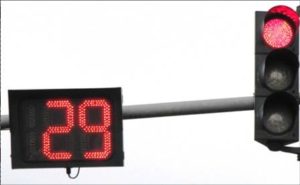
30 years in 60 seconds at the red-light…
I’m driving slowly in the dark and raining streets of my home town passing through clouds of car smoke. The gypsy ghetto in the outskirts of town is covered with the fog of fires made out of old tires burning in the yards. And the loud music adds that grotesque and gothic nuance to the whole picture with poorly clothed children dancing around the burnings.
The first red light stops me at the entrance to the “more civilized” part of the city. The bright counter right next to it slowly moves through the long 60 seconds while tiredly walking people pass through the intersection to go home and escape the cold rain. The street ahead of me is already covered with dirt and thickening layer of sleet.
This is how I remember Bulgaria of my youth and it seems like nothing has changed in the past 30 years.
The newly elected government just announced its coalition cabinet – next to a dozen like it that had failed in the past two decades. The gas price is holding firmly at $6/gal. and the price of electricity just increased by 10%, while the harsh winter is already knocking at the doors of poor Bulgarian households. A major bank is in collapse threatening to take down the national banking system and create a new crisis much like in Greece. These are the same factors that caused Bulgaria’s major inflation in 1993 and then hyperinflation in 1996-97.
What’s next? Another winter and again a hard one!
Ex-secret police agents are in all three of the coalition parties forming the current government. The ultra nationalistic party called “ATTACK” and the Muslim ethnic minorities party DPS are out for now, but awaiting their move as opposition in the future parliament. At the same time, the new-old prime minister (now in his second term) is already calling for yet another early parliamentarian election in the summer. This is only months after the previous elections in October, 2014 and two years after the ones before them on May 2013.
Every Bulgarian government in the past 30 years has focused on two rather mechanical goals: cardinal socio-economical reforms and battle against communism. The latter is simply unachievable without deep reformative change within the Bulgarian post-communist mentality. The purpose of any reform should be to do exactly that. Instead, what is always changing is the outwardness of the country. The change is only mechanical, but never organic within the country’s heart.
Bulgaria’s mechanical reforms in the past quarter of a century have proven to be only conditional, but never improving the conditions of living. The wellbeing of the individual and the pursuit of happiness, thou much spoken about, are never reached for they never start with the desire to change within the person. For this reason, millions of Bulgarians and their children today work abroad, pursuing another life for another generation.
The stop light in front of me turns green bidding the question where to go next. Every Bulgarian today must make a choice! Or we’ll be still here at the red light in another 30 years from now…
The Legacy of Dr. Nicholas Nikolov and the Bulgarian Pentecostal Union
Dr. Nicholas Nikolov passed to Glory on November 6, 1964. After his death, his wife Martha visited Bulgaria twice in 1976 and 1978, the second time for the 50th anniversary of the Pentecostal Union there where their legacy is strongly remembered to this day.
 The organizational talent of Nicholas Nikolov applied with the Pentecostal movement in Bulgaria shaped the history and set a course for the next century. A study on his role and leadership cannot be completed without pointing to the key factors of his ministerial and organizational success despite the divisions present in the Union.
The organizational talent of Nicholas Nikolov applied with the Pentecostal movement in Bulgaria shaped the history and set a course for the next century. A study on his role and leadership cannot be completed without pointing to the key factors of his ministerial and organizational success despite the divisions present in the Union.
After reviewing Nikolov’s work in Bulgaria, it is becoming clear that it was not the cause for a split among Bulgarian Pentecostals in 1928 as often held. The official registration of the new organization simply confirmed a deepening division that had began with the very start of the movement. More important for us today are the factors that helped Nikolov establish, grow and ensure the future of the Pentecostal organization, while many older and more experienced Bulgarian leaders failed and lost their rightful place in history.
Firstly, what other nucleases within early Bulgarian Pentecostalism lacked in comparison with Nikolov’s Union, was the strong support from abroad (educational, financial and otherwise). It proved indispensable in the Bulgarian context of ministry shaped by deep economic crises and spiritual hunger after WWI. Nikolov found way to implement this advantage effectively in areas where the few before him did not succeed.
Based on his strong relationship with Assemblies of God headquarters in Springfield came the clear articulation of doctrinal understanding expressed in a written statement of faith and praxis. In all fairness, neither faith nor praxis borrowed from the American Assemblies of God fit perfectly the primitive Pentecostalism of Bulgaria in 1928. But as the Union grew into a nationwide organization, more useful applications of organized life were replicated even after Nikolov had left Bulgaria for good.
Then comes the very strong and effective educational and discipleship vision for denominational growth (also borrowed from the American Assemblies of God). Other Pentecostal groups in Bulgaria were too formed around strong leaders, but as most of them remained in leadership for life their spiritual strength and vision naturally weekend. While the work of the Spirit and the practice of gifts were central among them, any formal education or even basic training in practical ministry and organizational leadership were disregarded as worldly having no place in the Church of God. With this mentality prevalent, many Pentecostal groups did not survive after the passing of their first generation of leaders and disappeared from history – either assimilated by the Pentecostal Union or lost forever.
In contrast, Nikolov gave special use of strategic organizational structure that aided the work of the Spirit and empowered the Pentecostal churches. He also found ways to invest in the development of trained leaders able to build and lead the Union until his initial vision was fulfilled. In the process, some congregations did loose spirituality while gaining more structure and training. But overall, a healthy balance was reached ensuring a growing and spiritual Pentecostal denomination.
Lastly, the decision to comply with government legislation opened doors to cooperate with other Protestants organizations on a national level. This decision brought constant tensions that had to be carefully weighed. Siding with churches of the Bulgarian Evangelical Alliance, many of which subscribed to liberal theology, was seen by the older believers as compromising of the Pentecostal faith. Yet, it gave the young Pentecostal movement much needed credibility.
In a similar matter the government registration, provided a nationwide representation of Pentecostals in religious life and opened doors for renting auditoriums, building sanctuaries and creating a national network of self-sustained churches. Some older Pentecostals still saw this as compromising with the world and an unforgivable sin. Especially when the Communist Regime took over Bulgaria in 1944, most leading Protestant pastors were sentenced to life in prison and their place in the pulpit was filled by government paid agents, who infiltrated the decision making body of the Union and enforced government mandate over the churches.
But it also helped the Union churches survive the Regime and be among the few allowed to have regular meetings and services making them the largest evangelical group in Bulgaria today. Nikolov was right with his decision that a small band of organized Pentecostals was much stronger than any other divided majority. And that empowering Spirit-filled communities with organizational structure and leadership mandate can earn their rightful place in history.
Virtual Real Estate for the Kingdom Conference
Cupandcross.com launched in the fall of 1999. Our first public letter went out for Thanksgiving exactly 20 years ago and snice then has reached thousands of readers, partners and friends each week.
Since these humble beginnings, nontraditional means of increase have provided Cup and Cross with unique opportunities to serve in times of hardship. Investing in Virtual Real Estate (VRE) in the 90s has not only provided an e-pulpit to minister to millions of people, but it has been an unprecedent venture. Acquiring and popularizing top level internet domain names has been a long-time focus of ours and its return to the ministry has been irreplaceable.
Our intent for acquiring domain names has been to allow other ministries or organizations to benefit from and use them for a period of time before sale in order to be a good Stuart of the e-space realty. With the wild fluctuations in the .com market, the potential value also alternates. It has been only with the Lord’s help of seizing the right moment within the divine destiny, that this unique venture has paid off.
Your Website Does Matter
Even if you’re fully engaging your members in church, you still need a church website. Why? According to Grey Matter Research, 17 million Americans who don’t regularly attend church visited a church website. While most are searching for church hours or programs, 26% are streaming video and another 26% are streaming audio. So yes, a website is vital for reaching more people and increasing your members.
Consultation
Beside personal presence and team building strategies, we implement the media in virtually every approach of ministry. We have published several research monographs as well as film series about our ministry work. Our team holds a weekly TV program called the Bible Hour.
Learn how we help churches build their own and unique media presence. For more information about such opportunity feel free to reach out to Cup and Cross. We can provide Internet conferences on the topic or come and visit with you at your church
The 95 Theses by Dr. Martin Luther
Disputation on the Power and Efficacy of Indulgences Commonly Known as The 95 Theses by Dr. Martin Luther
Out of love and concern for the truth, and with the object of eliciting it, the following heads will be the subject of a public discussion at Wittenberg under the presidency of the reverend father, Martin Luther, Augustinian, Master of Arts and Sacred Theology, and duly appointed Lecturer on these subjects in that place. He requests that whoever cannot be present personally to debate the matter orally will do so in absence in writing.
- When our Lord and Master, Jesus Christ, said “Repent”, He called for the entire life of believers to be one of repentance.
- The word cannot be properly understood as referring to the sacrament of penance, i.e. confession and satisfaction, as administered by the clergy.
- Yet its meaning is not restricted to repentance in one’s heart; for such repentance is null unless it produces outward signs in various mortifications of the flesh.
- As long as hatred of self abides (i.e. true inward repentance) the penalty of sin abides, viz., until we enter the kingdom of heaven.
- The pope has neither the will nor the power to remit any penalties beyond those imposed either at his own discretion or by canon law.
- The pope himself cannot remit guilt, but only declare and confirm that it has been remitted by God; or, at most, he can remit it in cases reserved to his discretion. Except for these cases, the guilt remains untouched.
- God never remits guilt to anyone without, at the same time, making him humbly submissive to the priest, His representative.
- The penitential canons apply only to men who are still alive, and, according to the canons themselves, none applies to the dead.
- Accordingly, the Holy Spirit, acting in the person of the pope, manifests grace to us, by the fact that the papal regulations always cease to apply at death, or in any hard case.
- It is a wrongful act, due to ignorance, when priests retain the canonical penalties on the dead in purgatory.
- When canonical penalties were changed and made to apply to purgatory, surely it would seem that tares were sown while the bishops were asleep.
- In former days, the canonical penalties were imposed, not after, but before absolution was pronounced; and were intended to be tests of true contrition.
- Death puts an end to all the claims of the Church; even the dying are already dead to the canon laws, and are no longer bound by them.
- Defective piety or love in a dying person is necessarily accompanied by great fear, which is greatest where the piety or love is least.
- This fear or horror is sufficient in itself, whatever else might be said, to constitute the pain of purgatory, since it approaches very closely to the horror of despair.
- There seems to be the same difference between hell, purgatory, and heaven as between despair, uncertainty, and assurance.
- Of a truth, the pains of souls in purgatory ought to be abated, and charity ought to be proportionately increased.
- Moreover, it does not seem proved, on any grounds of reason or Scripture, that these souls are outside the state of merit, or unable to grow in grace.
- Nor does it seem proved to be always the case that they are certain and assured of salvation, even if we are very certain ourselves.
- Therefore the pope, in speaking of the plenary remission of all penalties, does not mean “all” in the strict sense, but only those imposed by himself.
- Hence those who preach indulgences are in error when they say that a man is absolved and saved from every penalty by the pope’s indulgences.
- Indeed, he cannot remit to souls in purgatory any penalty which canon law declares should be suffered in the present life.
- If plenary remission could be granted to anyone at all, it would be only in the cases of the most perfect, i.e. to very few.
- It must therefore be the case that the major part of the people are deceived by that indiscriminate and high-sounding promise of relief from penalty.
- The same power as the pope exercises in general over purgatory is exercised in particular by every single bishop in his bishopric and priest in his parish.
- The pope does excellently when he grants remission to the souls in purgatory on account of intercessions made on their behalf, and not by the power of the keys (which he cannot exercise for them).
- There is no divine authority for preaching that the soul flies out of the purgatory immediately the money clinks in the bottom of the chest.
- It is certainly possible that when the money clinks in the bottom of the chest avarice and greed increase; but when the church offers intercession, all depends in the will of God.
- Who knows whether all souls in purgatory wish to be redeemed in view of what is said of St. Severinus and St. Pascal? (Note: Paschal I, pope 817-24. The legend is that he and Severinus were willing to endure the pains of purgatory for the benefit of the faithful).
- No one is sure of the reality of his own contrition, much less of receiving plenary forgiveness.
- One who bona fide buys indulgence is a rare as a bona fide penitent man, i.e. very rare indeed.
- All those who believe themselves certain of their own salvation by means of letters of indulgence, will be eternally damned, together with their teachers.
- We should be most carefully on our guard against those who say that the papal indulgences are an inestimable divine gift, and that a man is reconciled to God by them.
- For the grace conveyed by these indulgences relates simply to the penalties of the sacramental “satisfactions” decreed merely by man.
- It is not in accordance with Christian doctrines to preach and teach that those who buy off souls, or purchase confessional licenses, have no need to repent of their own sins.
- Any Christian whatsoever, who is truly repentant, enjoys plenary remission from penalty and guilt, and this is given him without letters of indulgence.
- Any true Christian whatsoever, living or dead, participates in all the benefits of Christ and the Church; and this participation is granted to him by God without letters of indulgence.
- Yet the pope’s remission and dispensation are in no way to be despised, for, as already said, they proclaim the divine remission.
- It is very difficult, even for the most learned theologians, to extol to the people the great bounty contained in the indulgences, while, at the same time, praising contrition as a virtue.
- A truly contrite sinner seeks out, and loves to pay, the penalties of his sins; whereas the very multitude of indulgences dulls men’s consciences, and tends to make them hate the penalties.
- Papal indulgences should only be preached with caution, lest people gain a wrong understanding, and think that they are preferable to other good works: those of love.
- Christians should be taught that the pope does not at all intend that the purchase of indulgences should be understood as at all comparable with the works of mercy.
- Christians should be taught that one who gives to the poor, or lends to the needy, does a better action than if he purchases indulgences.
- Because, by works of love, love grows and a man becomes a better man; whereas, by indulgences, he does not become a better man, but only escapes certain penalties.
- Christians should be taught that he who sees a needy person, but passes him by although he gives money for indulgences, gains no benefit from the pope’s pardon, but only incurs the wrath of God.
- Christians should be taught that, unless they have more than they need, they are bound to retain what is only necessary for the upkeep of their home, and should in no way squander it on indulgences.
- Christians should be taught that they purchase indulgences voluntarily, and are not under obligation to do so.
- Christians should be taught that, in granting indulgences, the pope has more need, and more desire, for devout prayer on his own behalf than for ready money.
- Christians should be taught that the pope’s indulgences are useful only if one does not rely on them, but most harmful if one loses the fear of God through them.
- Christians should be taught that, if the pope knew the exactions of the indulgence-preachers, he would rather the church of St. Peter were reduced to ashes than be built with the skin, flesh, and bones of the sheep.
- Christians should be taught that the pope would be willing, as he ought if necessity should arise, to sell the church of St. Peter, and give, too, his own money to many of those from whom the pardon-merchants conjure money.
- It is vain to rely on salvation by letters of indulgence, even if the commissary, or indeed the pope himself, were to pledge his own soul for their validity.
- Those are enemies of Christ and the pope who forbid the word of God to be preached at all in some churches, in order that indulgences may be preached in others.
- The word of God suffers injury if, in the same sermon, an equal or longer time is devoted to indulgences than to that word.
- The pope cannot help taking the view that if indulgences (very small matters) are celebrated by one bell, one pageant, or one ceremony, the gospel (a very great matter) should be preached to the accompaniment of a hundred bells, a hundred processions, a hundred ceremonies.
- The treasures of the church, out of which the pope dispenses indulgences, are not sufficiently spoken of or known among the people of Christ.
- That these treasures are not temporal are clear from the fact that many of the merchants do not grant them freely, but only collect them.
- Nor are they the merits of Christ and the saints, because, even apart from the pope, these merits are always working grace in the inner man, and working the cross, death, and hell in the outer man.
- St. Laurence said that the poor were the treasures of the church, but he used the term in accordance with the custom of his own time.
- We do not speak rashly in saying that the treasures of the church are the keys of the church, and are bestowed by the merits of Christ.
- For it is clear that the power of the pope suffices, by itself, for the remission of penalties and reserved cases.
- The true treasure of the church is the Holy gospel of the glory and the grace of God.
- It is right to regard this treasure as most odious, for it makes the first to be the last.
- On the other hand, the treasure of indulgences is most acceptable, for it makes the last to be the first.
- Therefore the treasures of the gospel are nets which, in former times, they used to fish for men of wealth.
- The treasures of the indulgences are the nets which to-day they use to fish for the wealth of men.
- The indulgences, which the merchants extol as the greatest of favours, are seen to be, in fact, a favourite means for money-getting.
- Nevertheless, they are not to be compared with the grace of God and the compassion shown in the Cross.
- Bishops and curates, in duty bound, must receive the commissaries of the papal indulgences with all reverence.
- But they are under a much greater obligation to watch closely and attend carefully lest these men preach their own fancies instead of what the pope commissioned.
- Let him be anathema and accursed who denies the apostolic character of the indulgences.
- On the other hand, let him be blessed who is on his guard against the wantonness and license of the pardon-merchant’s words.
- In the same way, the pope rightly excommunicates those who make any plans to the detriment of the trade in indulgences.
- It is much more in keeping with his views to excommunicate those who use the pretext of indulgences to plot anything to the detriment of holy love and truth.
- It is foolish to think that papal indulgences have so much power that they can absolve a man even if he has done the impossible and violated the mother of God.
- We assert the contrary, and say that the pope’s pardons are not able to remove the least venial of sins as far as their guilt is concerned.
- When it is said that not even St. Peter, if he were now pope, could grant a greater grace, it is blasphemy against St. Peter and the pope.
- We assert the contrary, and say that he, and any pope whatever, possesses greater graces, viz., the gospel, spiritual powers, gifts of healing, etc., as is declared in I Corinthians 12 [:28].
- It is blasphemy to say that the insignia of the cross with the papal arms are of equal value to the cross on which Christ died.
- The bishops, curates, and theologians, who permit assertions of that kind to be made to the people without let or hindrance, will have to answer for it.
- This unbridled preaching of indulgences makes it difficult for learned men to guard the respect due to the pope against false accusations, or at least from the keen criticisms of the laity.
- They ask, e.g.: Why does not the pope liberate everyone from purgatory for the sake of love (a most holy thing) and because of the supreme necessity of their souls? This would be morally the best of all reasons. Meanwhile he redeems innumerable souls for money, a most perishable thing, with which to build St. Peter’s church, a very minor purpose.
- Again: Why should funeral and anniversary masses for the dead continue to be said? And why does not the pope repay, or permit to be repaid, the benefactions instituted for these purposes, since it is wrong to pray for those souls who are now redeemed?
- Again: Surely this is a new sort of compassion, on the part of God and the pope, when an impious man, an enemy of God, is allowed to pay money to redeem a devout soul, a friend of God; while yet that devout and beloved soul is not allowed to be redeemed without payment, for love’s sake, and just because of its need of redemption.
- Again: Why are the penitential canon laws, which in fact, if not in practice, have long been obsolete and dead in themselves,—why are they, to-day, still used in imposing fines in money, through the granting of indulgences, as if all the penitential canons were fully operative?
- Again: since the pope’s income to-day is larger than that of the wealthiest of wealthy men, why does he not build this one church of St. Peter with his own money, rather than with the money of indigent believers?
- Again: What does the pope remit or dispense to people who, by their perfect repentance, have a right to plenary remission or dispensation?
- Again: Surely a greater good could be done to the church if the pope were to bestow these remissions and dispensations, not once, as now, but a hundred times a day, for the benefit of any believer whatever.
- What the pope seeks by indulgences is not money, but rather the salvation of souls; why then does he suspend the letters and indulgences formerly conceded, and still as efficacious as ever?
- These questions are serious matters of conscience to the laity. To suppress them by force alone, and not to refute them by giving reasons, is to expose the church and the pope to the ridicule of their enemies, and to make Christian people unhappy.
- If therefore, indulgences were preached in accordance with the spirit and mind of the pope, all these difficulties would be easily overcome, and indeed, cease to exist.
- Away, then, with those prophets who say to Christ’s people, “Peace, peace,” where in there is no peace.
- Hail, hail to all those prophets who say to Christ’s people, “The cross, the cross,” where there is no cross.
- Christians should be exhorted to be zealous to follow Christ, their Head, through penalties, deaths, and hells.
- And let them thus be more confident of entering heaven through many tribulations rather than through a false assurance of peace.


